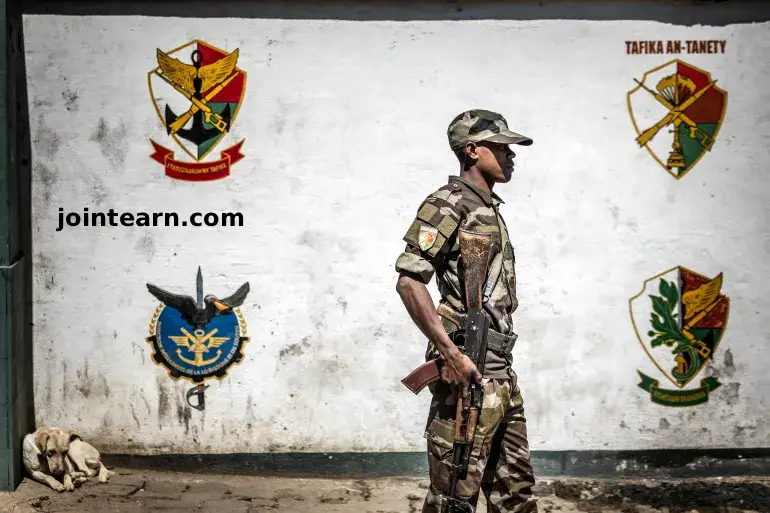
Madagascar Appoints New Prime Minister After Military Coup Amid Political Turmoil
Antananarivo, Madagascar — October 20, 2025.
Madagascar has officially entered a new era of military rule after Colonel Michael Randrianirina, the army officer who seized power earlier this month, appointed businessman Herintsalama Rajaonarivelo as the country’s new prime minister. The announcement follows weeks of political upheaval and youth-led protests that forced former President Andry Rajoelina into exile.
Randrianirina, who was sworn in as interim president last week, said he chose Rajaonarivelo for his “experience and international connections” — a move widely seen as an attempt to legitimize the military government in the eyes of foreign partners and investors.
Coup Leader Consolidates Power After Gen Z-Led Protests
The coup was triggered by unprecedented “Gen Z Madagascar” demonstrations, a massive youth-driven movement that erupted in September over chronic power outages, water shortages, and corruption scandals. The protests quickly evolved into calls for systemic political reform and Rajoelina’s resignation.
After days of mounting unrest, parts of the military turned against the president. Randrianirina, a relatively unknown but outspoken critic of Rajoelina’s administration, gained prominence when he appeared riding atop an armored vehicle amid the protesters — symbolizing the military’s defection.
Within hours, troops loyal to Randrianirina occupied key government buildings in the capital Antananarivo, forcing Rajoelina to flee the country. Parliament later impeached Rajoelina for “dereliction of duty”, paving the way for the military takeover.
Exiled President Rajoelina Condemns the Coup
From an undisclosed location abroad, former President Andry Rajoelina released a statement denouncing the coup as “illegal and anti-democratic,” insisting he remains Madagascar’s legitimate leader.
“The resignation letter circulating online is fake,” he said. “The people must not believe these lies spread to confuse and divide.”
Rajoelina, who previously came to power through a coup himself in 2009 before winning later elections, now faces the same fate he once inflicted on others — ousted by military intervention and popular unrest.
Diplomatic sources say Rajoelina is seeking regional support, but the African Union and United Nations have already condemned the coup and called for a return to constitutional order. The African Union Commission has suspended Madagascar’s membership pending a transition plan.
A New Prime Minister with Economic Ties
The newly appointed prime minister, Herintsalama Rajaonarivelo, is a wealthy businessman with longstanding ties to the country’s export and tourism sectors. His selection is viewed by analysts as a signal that Randrianirina aims to appease the private sector and international donors worried about sanctions and instability.
“Rajaonarivelo’s appointment is a tactical choice — he brings economic credibility to a regime that needs legitimacy fast,” said Malagasy political analyst Tiana Rabenoro. “However, his association with former elites could alienate the very protesters who demanded change.”
Randrianirina justified his decision by highlighting Rajaonarivelo’s “connections with international organizations that work with us,” hinting at a desire to restore cooperation with financial institutions such as the World Bank and IMF, which froze assistance following the coup.
International Condemnation and Domestic Uncertainty
The coup has drawn swift condemnation from regional and global powers. The United Nations, African Union, and European Union all released statements warning that aid and diplomatic recognition could be suspended unless democratic governance is restored.
Human rights organizations have also expressed concern over reports of arbitrary arrests, media restrictions, and increased military presence in Antananarivo and other major cities.
Despite the uncertainty, many young protesters remain hopeful that the uprising has forced long-overdue change. “We started this revolution for jobs, justice, and fairness,” said Miora Andriambololona, a 22-year-old activist. “We don’t want another dictator — we want a real democracy.”
Madagascar’s High Court Ratifies the Takeover
In a move criticized by international observers, the High Constitutional Court swiftly ratified Randrianirina’s presidency just hours after the coup. The court’s endorsement effectively legalized the military takeover, raising questions about judicial independence in the crisis.
Randrianirina has since promised a “profound transformation” of Madagascar’s political system and vowed to organize new elections “once stability is restored.” However, no clear timetable has been announced, fueling speculation that the military may seek to hold onto power indefinitely.
A Nation at a Crossroads
Madagascar’s latest upheaval underscores the fragility of democratic institutions in one of Africa’s most politically volatile nations. The island has endured repeated coups since independence in 1960, each accompanied by promises of reform that later gave way to corruption and division.
The Gen Z movement that helped topple Rajoelina represents a new generation’s frustration with decades of misrule. But whether the military-led government can channel that momentum into lasting reform — or merely consolidate power — remains uncertain.
For now, Madagascar stands on a knife’s edge between transformation and turmoil, as its people await clarity on what the future holds.


Leave a Reply